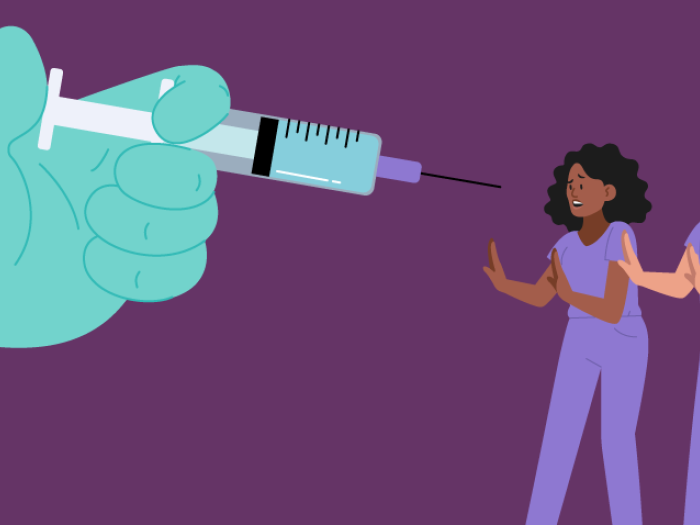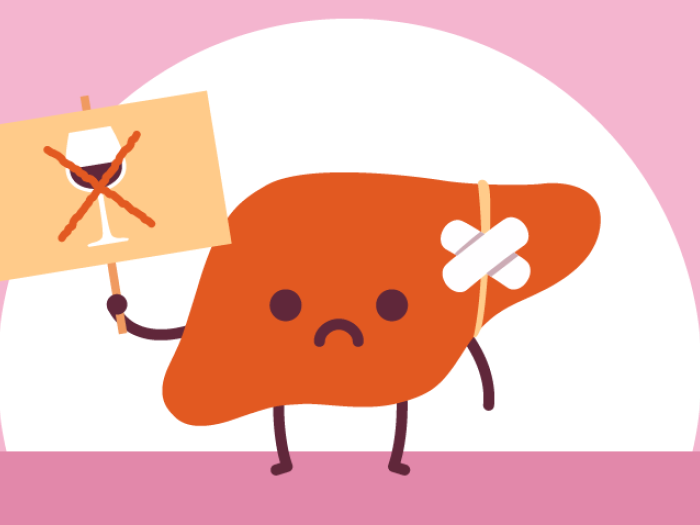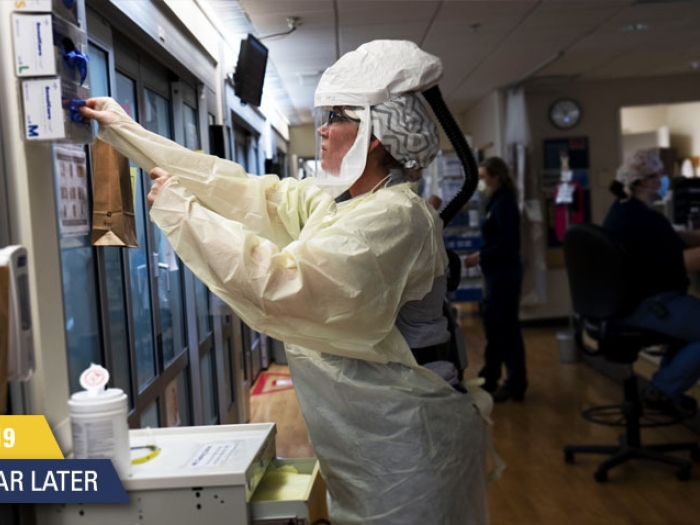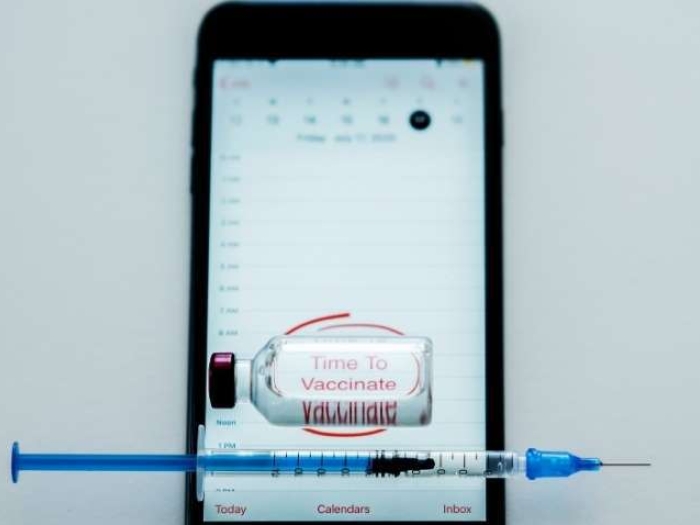Practical tips for COVID-19 hospital and post-hospital care available for anyone to use, and for any hospital or health system to adapt and publish.
11:13 AM
Author |
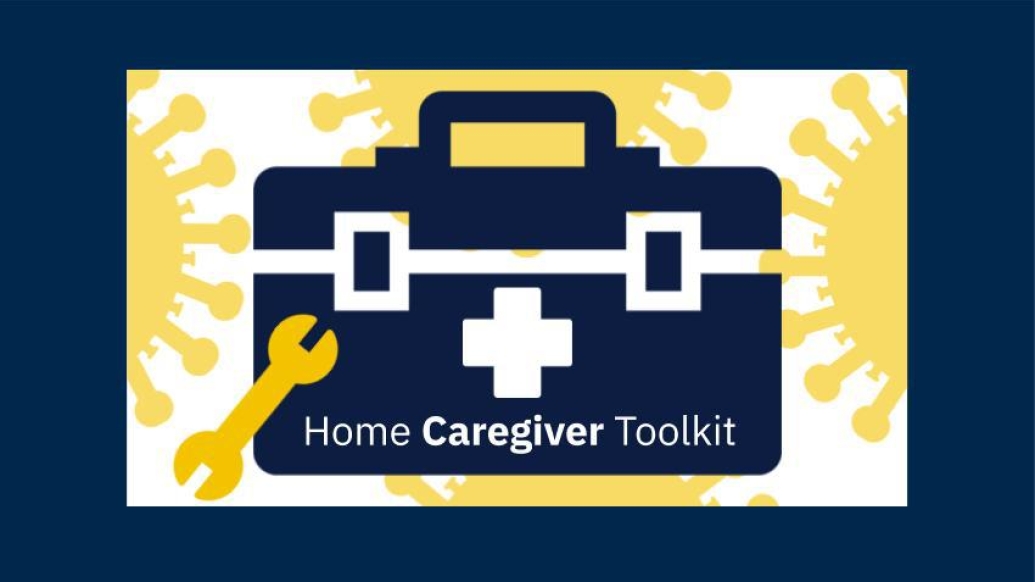
No one likes to venture into a new city or country without a map or guidebook.
But that's what having COVID-19 has felt like to people with the disease – and to the family and friends who are caring for them throughout their journey.
Now, a team from the University of Michigan has created a set of nine COVID-19 guidebooks, based on the wisdom and experience of people who have lived through the disease or served as caregivers to others.
It also draws on reputable sources including the Centers for Disease Control and Prevention, the Michigan Department of Health and Human Services, and Michigan Medicine, U-M's academic medical center.
These guides are free, printable electronic publications filled with easy-to-understand practical advice and places to record important information.
Co-creating guides with patients and caregivers to help others
After learning about the need for better resources from COVID-19 caregivers and patients who are taking part in a study called HEART, an interdisciplinary team organized by the BioSocial Methods Collaborative at U-M's Institute for Social Research developed the guides. This interdisciplinary collaborative effort includes faculty and staff from Michigan Medicine, Psychiatry, the School of Nursing, Psychology and many other fields.
SEE ALSO: 14 Things to Do If Someone You Live With Has COVID-19
With support from U-M and the Procter & Gamble Company, and assistance from U-M's Michigan Institute for Clinical and Health Research, the team started by creating guides customized to Michigan Medicine patients.
These can serve as templates for other hospitals, medical centers and caregiver support programs to adapt to their use. Editable versions are available on request by writing to [email protected].
"In the last nine months, health care professionals have gained more experience with the medical side of COVID-19 care, but every patient and caregiver has been going through it for the first time, each time," says Theodore J. Iwashyna, M.D., Ph.D., who inspired the development of the guides. "We needed to create a resource that distills the patients' and caregivers' best advice into practical guides to help others, from the start of serious symptoms through hospitalization and recovery. We plan to apply for funding to research the effectiveness of the guides."
The team also created an online site with links to resources that might be useful to people who are caring for COVID-19 patients at home or supporting them from a distance while they're in the hospital.
In the last nine months, health care professionals have gained more experience with the medical side of COVID-19 care, but every patient and caregiver has been going through it for the first time, each time.Theodore Iwashyna, M.D., Ph.D.
Procter & Gamble provided support for U-M staff to create the guides, and make them attractive and easy to use. The collaborative effort builds on a longstanding relationship between the company's research arm and the BioSocial Methods Collaborative's work on caregiving of all kinds.
"We at Procter and Gamble continually innovate to be a force for good and force for growth. And we know we can't do it alone, that is why it is a privilege to partner with experts at trusted institutions like the University of Michigan," says Kamilah Gillispie, vice president of corporate functions research and development at Procter and Gamble. "Partnering on this work extends P&G's mission of being a 'Force for Good' to serve, support and empower our consumers and their families in these trying times."
More about the HEART study
More than 15 million Americans have had COVID-19, and nearly 600,000 have been hospitalized for it, as of early December. Although vaccines are nearing availability and many states are tightening restrictions to reduce the spread of COVID-19, many more people are likely to fall ill in the coming months.
The HEART study, launched in March, has conducted in-depth interviews and focus groups with patients hospitalized with COVID-19 and their caregivers. These study participants have helped the team refine the guidebooks during development.
SEE ALSO: How to Care for Someone with COVID-19
The team is still collecting stories from patients and caregivers through a form on the study website.
They're also launching a virtual, peer mentorship program to support COVID-19 caregivers and patients. Interested volunteers can sign up for more information here.
The HEART study is co-led by Iwashyna, a Michigan Medicine critical care physician; Richard Gonzalez, Ph.D., the head of ISR's Research Center for Group Dynamics and the BioSocial Methods Collaborative; Hallie Prescott, M.D., M.Sc., a Michigan Medicine critical care physician; Sheria G. Robinson-Lane, Ph.D., from the U-M School of Nursing and Amanda Leggett, Ph.D., from the U-M Department of Psychiatry. Louis Penner, Ph.D., a social psychologist from Wayne State University in Detroit and a COVID-19 survivor, also participated in the guide's development.
P&G did not participate in the writing of the guides and does not have access to HEART study participants' identifiable information.
Paper cited: The BioSocial Methods Collaborative and HEART Research Project Team. COVID-19 Patient & Caregiver Collaborative Care Workbook. Ann Arbor: Michigan Medicine; 2020. DOI: 10.3998/2027.42/163715

Explore a variety of health care news & stories by visiting the Health Lab home page for more articles.

Department of Communication at Michigan Medicine
Want top health & research news weekly? Sign up for Health Lab’s newsletters today!
